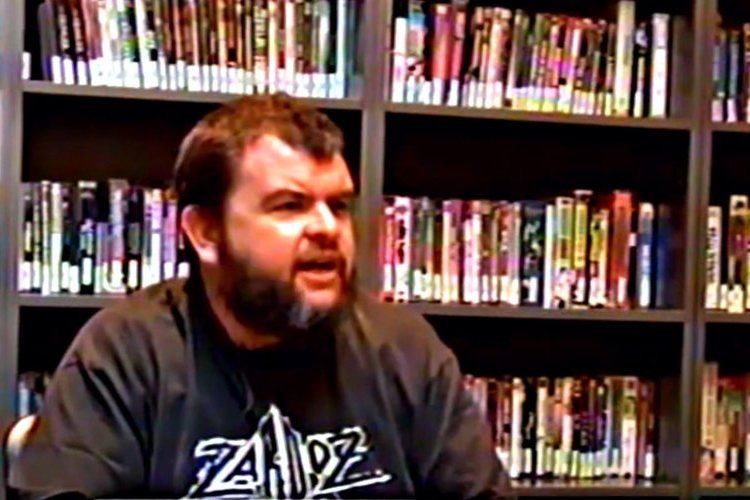BEDTIME FOR GONZO: An Interview With Author Mike McPadden
Is it possible for a provocateur to have a second act in their career? It's worth addressing that question to author Mike McPadden, who has enjoyed a wild, often controversial career in print form since the dawn of the '90s. He appeared on the underground pop culture radar during the 'zine revolution with his infamous Happyland. From there, he straddled the worlds of print and online media via gigs for Hustler magazine and MrSkin.com amongst others. Both his life and his writing were wild during these times.
Somewhere along the line, McPadden found a way to reconcile the wild interests of his youth and his brash voice as a writer with the changing directions of media and modern life. He got married, added crime journalism to his resume and entered the world of book publishing with books like his popular Heavy Metal Movies. His most recent work is Teen Movie Hell, a look back at the history of the teen sex comedies of the '70s and '80s filtered through a modern perspective. In a way, it brings the reconciliation of his past and present full-circle.
Mr. McPadden graciously agreed to an interview with Schlockmania and the results are informative, witty and at times soul-baring.
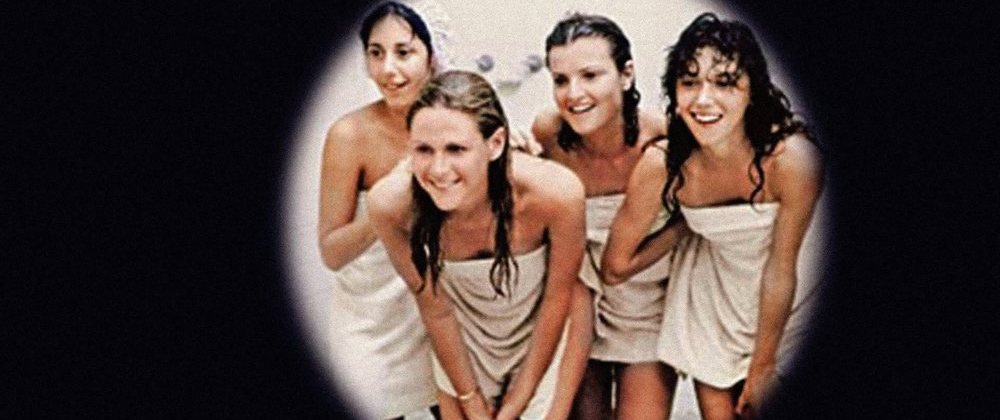
Once upon a time, you were best known for the controversial zine Happyland and writing for Hustler. Teen Movie Hell finds you collaborating with several feminist pop culture writers and dealing with timely topics like #metoo in the context of discussing teen sex comedies. Could you describe the career/life trajectory that led you from the first extreme to the current one?
Basically,I started publishing when I was a kid—a bombastically immature, booze-soaked,drug-inflamed 23-year-old “kid,” to be exact—and now I’m a 50-year-old marriedman who’s been clean and sober for nearly 20 years.
Backwhen, though, in 1991, Happyland was my contribution to punk rock—specificallythe form of punk that that stressed nihilism, decadence, and sick humor, asembodied the Butthole Surfers, the Melvins, Big Black, Fear, and the Dwarves aswell as National Lampoon and the films of John Waters.
Withthat in mind, it was important for me to take aim at the anti-fun politicalcrusaders that I felt co-opted punk and reformed into obnoxiouslyself-righteous do-gooder nonsense full of rules. I quit going to church withouteven having to get molested, so I had no time for anybody who swapped out thatbrand of moralism for the shit being peddled by Joe Strummer and MaximumRock-n-Roll.
Interms of Hustler—first and foremost, I was a pervert. Beyond that, growing upin the 1970s, I perceived pornography as being equally opposed by the politicalright and the political left. Therefore, I reasoned that if both Jerry Falwelland Andrea Dworkin fought so vehemently against pornography that it had toresemble something close to The Truth.
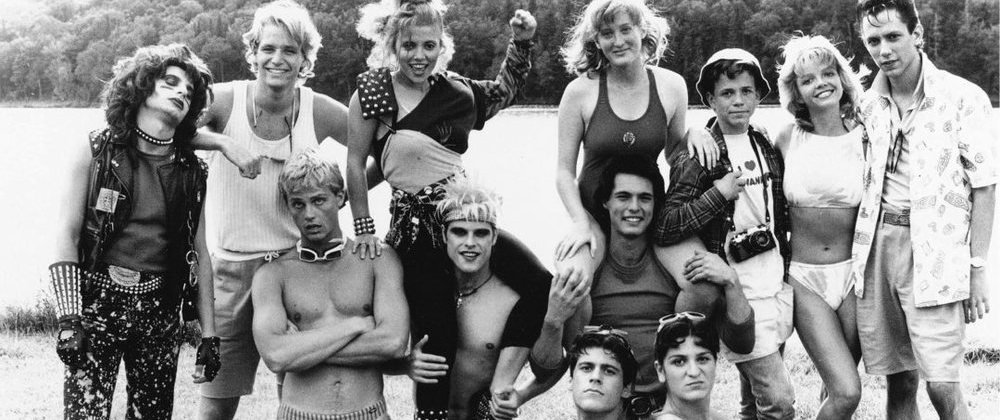
Hustlercombined everything I loved and lusted for most: dirty cartoons, gross-outgags, profiles of sickos, conspiracy reporting, horrifying imagery, undergroundartists, and an absolute commitment to always being the most extreme insparking outrage and offending absolutely all points of view. Thus, Larry Flyntand his berserk publication very much seemed in the spirit of my take on punk.
Plusit was the most sexually explicit option on the newsstand. And again, first andforemost, I was a pervert.
All that stated, I am an outsider and I am on the side of other outsiders. I wrote repulsive, sexually unhinged material not because I was a misogynist, but because I wanted to defy “proper decorum” and lash out at constrictions I felt kept us all locked down. More than that, though, I thought that stuff was funny—because it was wrong and I KNEW it was wrong and, at the time, an audience could understand what was funny about that, too.
That’swhat’s lost in today’s discourse: offensive humor works because we KNOW it’soffensive! THAT’s the joke!
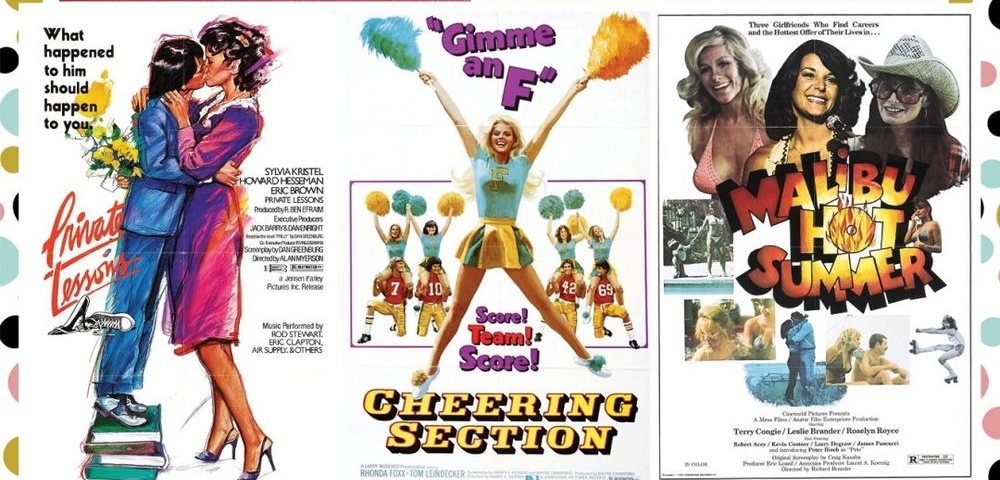
Soin terms of my evolution, per se, after a brief panic and some of my own moraloutrage—ugh—over the apparent embrace of censorship and public shaming that hascome to dominate society, particularly in creative areas, I accepted the newreality.
“Politicalcorrectness”—for lack of a less heinous term—was an idea whose time had comeand to attempt to fight against that is a fool’s errand. Plus, I started to seegood resulting from these changing mores. Not entirely, of course, but also notentirely NOT, either.
Justas the extreme elements of the ’90s underground had, by the decade’s end, cometo define the mainstream via South Park,Family Guy, and There’s Something About Mary, the young generation would dictatetoday’s terms of engagement, and, to be sure, those rules seemed to be theactual opposite of what I had been used to—and I liked some of what washappening.
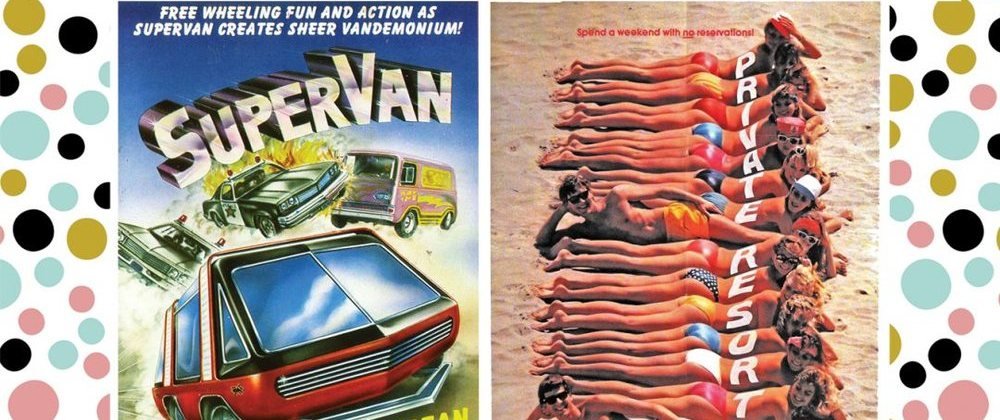
Politenessbenefits everyone and that includes, as is most important to me, ME!
Also,I was already 40 when all this took flight. I practiced a lot of acceptancewhen it came to kicking alcohol and drugs, and I enabled myself to feel empathyand not just view the rest of humanity exclusively as targets.
Plus,it’s pathetic and even disgusting to witness middle-aged men—and, yes, it’salways men—kicking against those they deem “the pricks” of the present day.Twitter is full of such buffoons, as well as the at-least-as-awful pricks whokick in reverse. That’s why I only use Twitter to promote stuff and then I zipthe hell out of that cess-pond.
Towardthe end of 2017, in light of the #metoo movement, it struck me hard that for Teen Movie Hell to work, it wouldrequire points-of-view other than that of a middle-aged married man for whomthese films were made, and which almost universally revel in theobjectification, humiliation, and exploitation of females.
Fortunately, I am blessed to know some brilliant film and culture writers who just happen to be women. I offered to hire them to contribute essays and this cabal of geniuses honored me and improved Teen Movie Hell immeasurably by agreeing to do so.
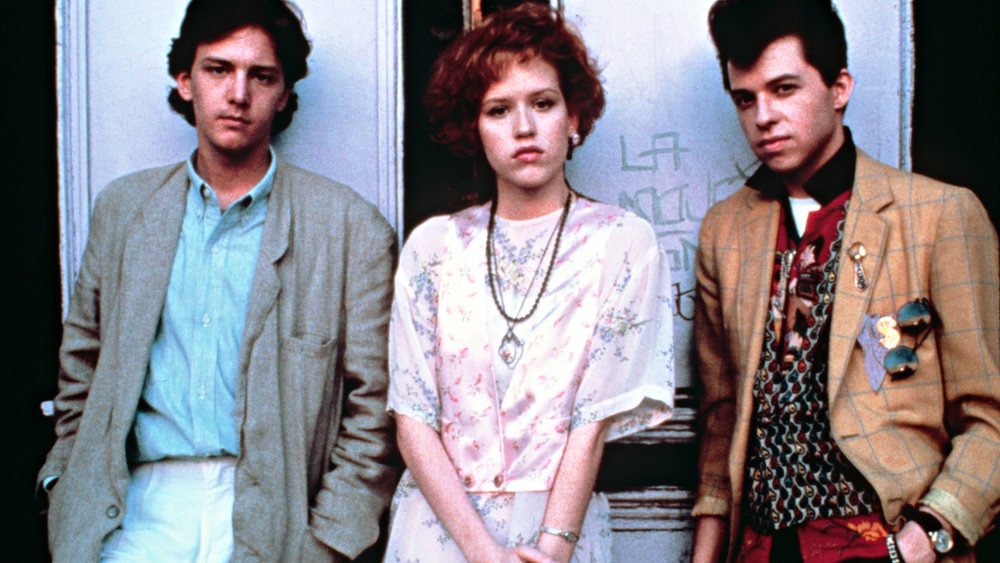
Like many people my age, I grew up withJohn Hughes movies and was part of their obsessive teen following during thatera. As I got older, I came to realize that these films were a weird, middle-agedvision of who teenagers are and have a lot of odd, socially conservativeelements (Ducky's fate in Pretty In Pink, the misfit cleaning herself up to bedateable for the jock in The BreakfastClub). Would you please describeyour take on the Hughes teen-flick oeuvre?
JohnHughes gentrified the neighborhood. That’s it. The teen sex comedy had been arickety, dangerous, anything-goes boardwalk midway and he converted it intoDisneyland.
Thatstated, there’s a place for the pleasures of Disneyland but, in keeping withthe gentrification angle, with Hughes it came at the expense of putting all themenacing sideshows and the carnies that worked them out of business.
Sixteen Candles isfunny. Weird Science is funny. The Breakfast Club is important topeople I like but who aren’t me. FerrisBueller is the ultimate war crime in the battle of the slobs and againstthe snobs, and serves as both a manifesto and a recruitment video for the badguys—who, yes, would be the snobs.
Pretty in Pink isthe one Hughes movie I really do enjoy and that I find both funny andmeaningful. A lot of that has to do with, as you put it, Ducky’s fate—which Ithink is appropriate, realistic, and a declaration that Andie, the MollyRingwald character, is in charge of her own life and her own decisions.
Theoriginal ending, as written by Hughes, had Andie go off with Ducky. At earlytest screenings, teenage audiences smelled bullshit and protested, saying thatAndie should leave with the rich preppy played by Andrew McCarthy. I agree.Director Howard Deutch then re-shot the ending, despite reported hissy-fitsfrom writer and producer Hughes.
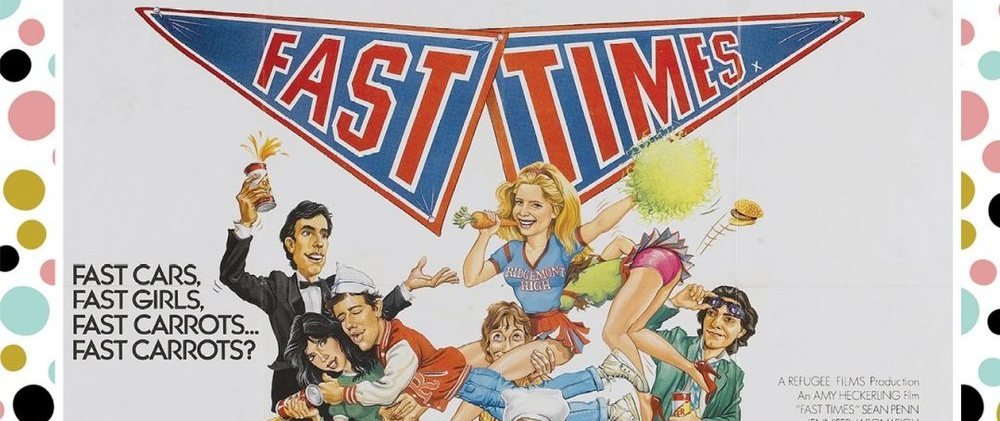
Inlarge part, the sympathy deck is stacked in Ducky’s favor—he’s the nerd, he’sthe weirdo, and, to invoke a horrendous idea, he’s “put in the effort” to winAndie’s heart. To hell with all that—Andie likes the rich kid, Andie choosesthe rich kid. That’s right. That’s as it should be.
Hugheshated the end of Pretty in Pink somuch that he wrote Some Kind ofWonderful as a gender-flipped remake that came out less than a year later.That was the end of his teen run, and rightly so.
If you had to introduce apost-millennial film fan who didn't know anything about the genre to the wondersof the teen sex comedy, what are the top three films you'd pick for them andwhy?
Thetwo best-made movies in the book are AmericanGraffiti (1973) and Risky Business(1983). Those are cinematic masterworks. AnimalHouse is also perfect. But I wouldn’t start with those.
Forbasic introduction purposes, I’d say Porky’s(1982), just because that title is shorthand for the genre. No post-millennialwould enjoy it, but there are no safe spaces in this particular education.
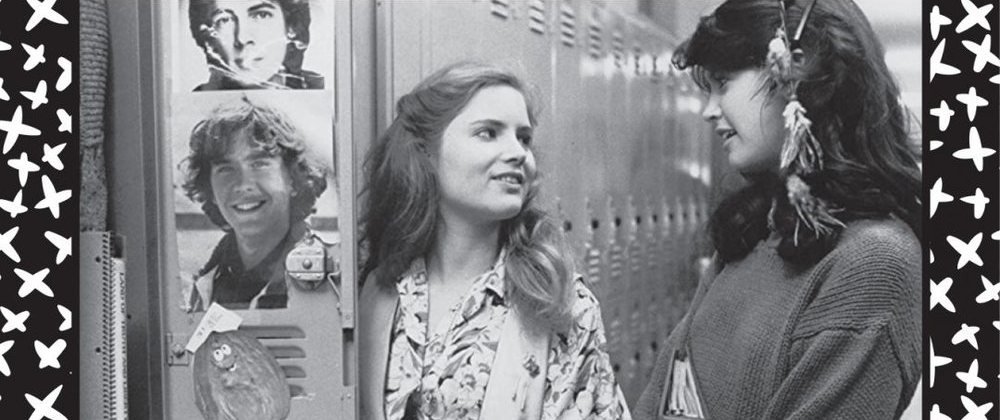
Afterthat, Fast Times at Ridgemont High(1982), because it’s the apex of the form and contains powerful female pointsof view.
Finally—afterabout a billion trigger warnings—I’d pick Revengeof the Nerds (1984), because it embodies so much of these films AND how ourperceptions of them have changed through the years regarding voyeurism, sex bydeception, and revenge porn, all of which are played for big laughs there.
Asa healing balm, then, I’d wedge in JustOne of the Guys (1985). I know that’s four movies, but it’s necessary.Think of the 35-year-old children!
For those who know the genre wellenough to know all the name-brand classics, please name three obscure titlesyou'd recommend for a deeper dive and what makes them worth tracking down.
Myheart belongs to the most insane, over-the-top, and cartoonishly offensiveexamples of the genre. That crucial list consists of:
• King Frat (1979)—An Animal House rip-off centered on notone but two Big Fart Contests held at a local theater. It is the grossest!
• Zapped! (1982) — Scott Baio stars as ascience geek who obtains the ability to pop open girls’ tops with his mind.Scatman Crothers gets high and hallucinates salami missiles.
• Joysticks (1983) — A marvelouslycrackpot cash-in on the video arcade craze, highlighted by Jon Gries as “hismajesty, King Vidiot”!
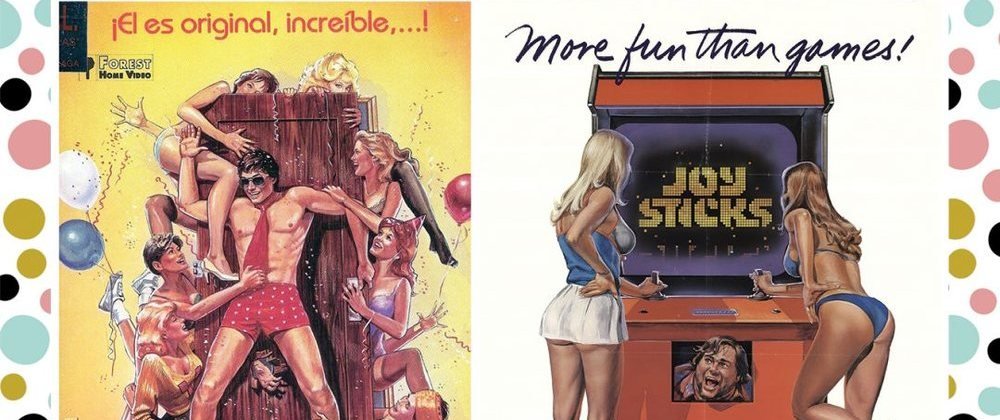
• Screwballs (1983) — Absolute lunacy about five archetypal dorks, including one called Melvin Jerkovski, on a mission to see the boobs of the class snitch, who’s named Purity Busch.
• Oddballs (1984) — Summer camp runamuck, Airplane!-style, starringperma-drunk comedian Foster Brooks as the facility’s ferociously frustratedowner.
• Surf II (1984) — A brilliant imaginingof the raunchiest possible end of vintage Frankie-and-Annette beach partymovies, starring über-nerd Eddie Deezen as a mad scientist out to conquer theworld by turning surf dudes and bikini babes into zombies.
• The Party Animal (1985) — Absoluteanarchy in mockumentary form, chronicling the carnal college misadventures ofsmall-town disaster Pondo Sinatra (Matthew Causey) who arrives on campus byfalling off the back of a turnip truck—literally.
• Hamburger: The Motion Picture (1986) —Nonstop hilarity inspired by the nonstop hilarious reality of McDonald’sactually running Hamburger University. Amazingly inventive sight gags.
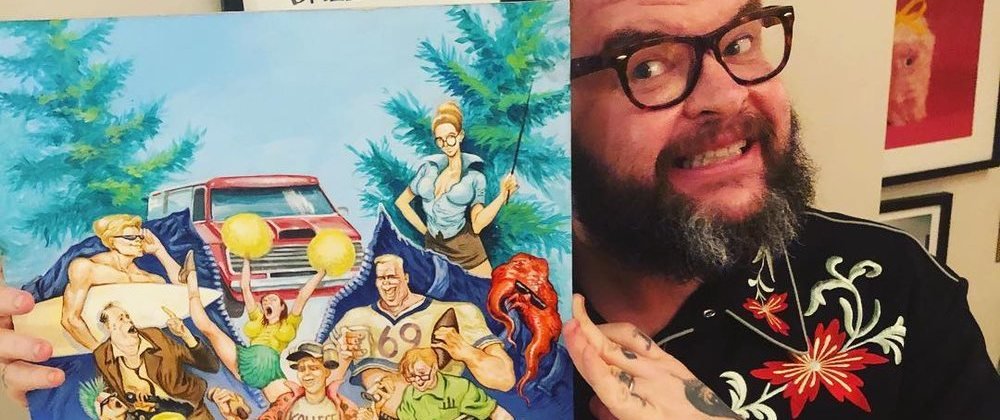
Your writing shows a lot of interest inmusic, as evidenced by your Heavy MetalMovies book. What do you considerthe best soundtrack songs in the teen sex comedy world and what makes themstand out?
Thebest title track is “Up the Creek” by Cheap Trick. It’s also all power chordswith a sing-along chorus and it’s one of the best Cheap Trick songs, whichmakes it one of the best songs in rock, period.
Myfavorite song is “Trying to Kill a Saturday Night” by the brother duo Keane,which plays under the opening titles of Zapped!It’s piano-driven power pop that deserved to be a mammoth hit. Maybe it stillcould be.
The entire soundtrack from Up the Academy (1980) is incredible, topped by the high-octane rabble-rouser “Kickin’ Up a Fuss” by real-life L.A. teen punks Blow-Up.
Hopefully, that's whetted your appetite for more teenage cine-carnal-carnage. If so, you can check out his book at his publisher's website by clicking here. For a bevy of bonus information, including other interviews and podcast appearances, check out the Teen Movie Hell Facebook page. And if that's not enough, McPadden is also hosting a series of screenings for films in the book all over the U.S. Check below for the latest information on dates, theaters and films.
June20
Chicago,Music Box Theatre—HOT DOG: THE MOVIE
July21
Chicago, Music Box Theatre—VALLEY GIRL and THE LAST AMERICAN VIRGIN
July27
Philadelphia,PhilaMOCA—VALLEY GIRL
July31
Austin,Alamo Drafthouse—THE LAST AMERICAN VIRGIN
August10
Boston—CoolidgeCorner Theater—MEATBALLS
August18
Brooklyn,Alamo Drafthouse—THE LAST AMERICAN VIRGIN
August20
Yonkers, Alamo Drafthouse—THE BURNING (Heavy Metal Movies event)
August24
Chicago,Bucket O’ Blood Books — All night MEATBALLS VHS marathon (all four movies)
October
Los Angeles, Alamo Drafthouse—TBA


